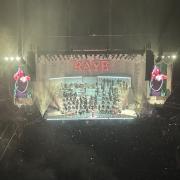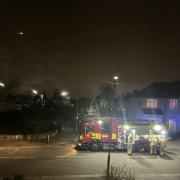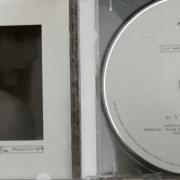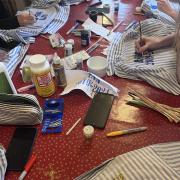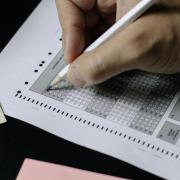
The past year has been a particularly tumultuous period for many people, not least of all for students. The country experienced its third lockdown after Boris Johnson addressed the nation on January 4th about the new and additional measures that were to be put in place to overcome the pandemic. Students across the country became online learning. They familiarised themselves with their digital devices, making use of the increasingly prevalent technologies available to them. It brought a new dynamic to the classroom, presenting various opportunities, but nonetheless an equal number of challenges.
Lockdown learning has been particularly challenging for GCSE and A level students as they head into their most crucial years of education. The government announced that GCSE's would be cancelled and would take a new form. Grades would be assigned by teachers who have to create a portfolio of evidence. In an effort to understand how the experience has been for students, I sat down with a group of classmates from Year 11 to interview them and understand their opinion. (For the sake of this interview, they chose to remain anonymous.)
Q: How did you feel when the lockdown was announced?
A: Since the lockdown was announced in January, overall I was not too concerned. While it wasn’t ideal, we were lucky because the way in which our school has taught us meant that our education was not severely impacted and we remained on course to cover all the necessary content.
Q: What did you particularly find challenging about learning from home?
A: Technical difficulties were clearly an issue. Some of us faced problems that meant that we couldn’t make the best out of each lesson. Everyone had their own unique setup in their household and unfortunately not everyone was fully equipped making it harder to engage with the lessons. In addition, the obvious lack of contact was quite challenging. As teenagers, we often want to see our friends and social interaction and being outside is very important to us. The lockdown clearly limited this but we tried to find ways of keeping in touch. We played games, texted or on the odd occasion called each other.
Q: Did you find anything beneficial from working at home?
A: While a strange experience, there were some positives. Being able to wake up later and work from the comfort of your home was quite relaxing. The stress of remembering books and arriving to school on time disappeared.
Q: What course of action has your school taken, and how do you feel about it?
The government had said that assessing and assigning the GCSE grade will be done by teachers. Further assessment material may be provided by the government that the school can choose to use. Overall the process was delegated to schools, allowing for some level of flexibility in providing, ‘evidence,’ to support the assigning of the students grade.
A: Our school has decided to use CCTs (Condition Controlled Tests) which will last for just under a month. It is quite annoying because I have to prepare a lot and with the pandemic it has been difficult to consolidate my lockdown work. However, I do see it as a chance to improve on my previous scores and prove that I am deserving of a higher grade. Our school has decided to remove certain parts of the syllabus for each subject to account for workload and stress which can also be seen as a benefit. Overall, though, I feel that the school has prepared us well and I hope to receive a good grade in the summer.
The interview was a valuable insight into how other students were handling this peculiar situation. After talking to them, I got a clear sense that the veil of unpredictability has been lifted and for better or for worse, and pupils are trying their best to achieve the best results they can.






